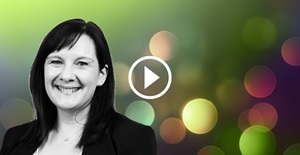Judgment and decision-making are central to good management and there are key lessons for HR professionals on both according to Nobel prize-winning author and psychologist Professor Daniel Kahneman. He has been talking to Radio 4’s Start the Week programme about the concept of ‘noise’ and how it damages decisions – by noise he means the variability in decisions made by people and it is the subject of his latest book. Personnel Today carries one of Kahneman’s key points which is that the pandemic can be the catalyst for a total re-think. So, a return to the office should be accompanied by a radically new outlook from employers and employees so that we avoid falling into the same patterns of behaviour that, in the past, has led to far too much poor decision-making.
Of course, Kahneman has a lot of evidence to back up what he says. For example, in one case he investigated the extent to which decisions were uniform, studying the work of insurance underwriters, who when given with the same facts often came to completely different conclusions to those that the company’s executives had expected, much to their surprise. In another experiment he looked at the decisions made by 208 judges in America who were presented with the same 16 cases. He said you would have expected them to broadly agree on what the sentences should be but, despite an average sentence of seven years, there was wide divergence of more than three years in sentencing decisions. His point is that whenever there is judgment there is noise and there is a lot more of it than you think.”
Alongside Kahneman in the BBC’s programme was Ann Cairns, executive vice chair of Mastercard. She said that ‘noise’ had led to far too few women being appointed to senior positions. She said she was able to achieve positive change by requiring the decision-makers to reflect on the whole process they were engaged in. So, by maintaining independence from the hiring decision-making process, and asking HR managers why so few women were being recruited or promoted and requesting that they reflect on their own thought processes, she was able to reflect positive change.
So, let’s consider this concept of noise and its impact on decision making. Kate Dodd is a diversity and inclusion specialist who listened to Kahneman’s interview and has read the article. She joined me by video-link from Manchester to discuss it:
Kate Dodd: “There are two different types of noise really, of course, and the article is particularly interesting about ‘emotional noise’. What we tend to think about when we talk about an emotional noise is the influences that are on us, whether that be known or unknown, conscious or unconscious, and it has long been acknowledged that decisions are very much affected by noise. So, for example, there's a study that showed that doctors in the US are more likely to prescribe antibiotics in the afternoon than in the morning and people are going to make very different decisions if they're making those decisions on their own or in a group, and of course, bringing in of the phenomenon of ‘groupthink’ in terms of people going along with decisions that they don't necessarily agree with because the diversity of thought that is around a table, or a virtual table, at the moment doesn't necessarily have the opportunity to have their voice heard?”
Joe Glavina: “The other type of noise, physical noise, is almost taken for granted and ignored but actually there is an important message for HR on that too, Kate.”
Kate Dodd: “Yes, absolutely. The physical noise, of course, has always been an issue in offices and what we've seen, and what we're hearing from our clients has long been, that people who are neurodiverse, or even actually people who just prefer a quiet environment, be they introverts - and of course, an introvert isn't somebody who's shy or an introvert is somebody who gains their energy from being in a kind of a quiet, calm and peaceful environment from being on their own often - that those types of employees have long struggled with the new modern open plan offices which are very much kind of noisy, lots of things going on, very brightly lit type of offices. We know, and what we're hearing from our clients, is that actually some of the employees who are neurodiverse, or people who prefer that kind of quiet environment, have lived locked down because they've actually had an opportunity to do their job in a really quiet, pensive kind of thoughtful environment and what we're hearing at the moment, of course, is lots of plans about coming back into the office, lots of collaboration spaces and probably even less opportunity for people to work in quiet environments and we know that that's a problem and that is being linked by our clients, they're beginning to realise, the link between that and people being reluctant to come back into the office.”
Joe Glavina: “So, finally Kate, what are the action points for HR?”
Kate Dodd: “Well, yes, I mean so going back to the two different types of noise, an action point in relation to emotional noise in relation to those meetings, etcetera. The end of lockdown is a really good opportunity to think about how meetings take place. Are people going to be present in the same room? If so, there have been some really great advancements in technology which has allowed people who might find it difficult to interrupt to actually raise their hand and you'll have done this, I'm sure on Zoom or on Teams, or whatever programme that you're using, and that's allowed those individuals who don't necessarily want to shout across everybody else to have their opportunity to speak and it has been brilliant. So HR needs to think about how are we going to translate that back into the physical environment? How are we going to create those opportunities? How are we going to train our managers so that that virtual hand doesn't get lost and that those voices who have been quietly and patiently waiting their turn to be heard still get that opportunity?”
If you would like to listen to Daniel Kahneman on 'noisy' human judgement you can – the programme is available for downloading from the BBC’s iPlayer. We have put a link to it in the transcript of this programme.
LINKS
- BBC Radio 4’s Start the Week programme: Daniel Kahneman on 'noisy' human judgement:
BBC Radio 4 - Start the Week, Daniel Kahneman on 'noisy' human judgement
Kate Dodd tells HRNews what HR can take from Professor Daniel Kahneman’s ‘noise’ theory

-
Transcript


